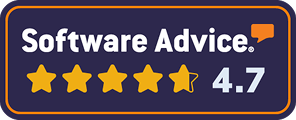Game Master
Resume Template
Create a winning impression with our Harvard University Approved template for Game Master.
Game Master
Resume Template
Create a winning impression with our Harvard University Approved template for Game Master.


Join the Course
Game Master Resume Sample (2025)
How to Present Your Contact Information
- Full name.
- Professional email address (avoid unprofessional ones).
- Link to your portfolio, LinkedIn, or relevant online profiles (if applicable).
- Phone number with a professional voicemail.
How to Write a Great Game Master Resume Summary
Creative and disciplined Game Master with over 5 years of experience in leading engaging role-playing sessions and designing compelling storylines that captivate players. Recognized for excellent improvisational skills and ability to foster community among players. Seeking to leverage my skills in narrative design and user engagement at a leading gaming company.
What Skills to Add to Your Game Master Resume
Technical Skills:
- Game design
- Storyline creation
- Game environment management
- Virtual Reality (VR) experience
- Game testing
Soft Skills:
- Creative storytelling
- Time management
- Conflict resolution
- Adaptability
- Excellent communication
What are Game Master KPIs and OKRs, and How Do They Fit Your Resume?
KPIs (Key Performance Indicators):
- Player retention rates
- In-game feedback scores
- Number of game sessions hosted
OKRs (Objectives and Key Results):
- Develop and implement new engaging storylines each quarter
- Increase player engagement by 20% over the next year
- Improve feedback ratings by 10% through enhanced game sessions
How to Describe Your Game Master Experience
List your experience in reverse chronological order. Focus on achievements, responsibilities, and quantifiable outcomes.
Right Example:
- Led immersive player experiences for over 100 role-playing sessions, resulting in a 20% increase in player retention.
- Implemented new storyline features that improved player feedback scores by 15% within six months.
- Managed a virtual team of 5 game facilitators, enhancing overall session efficiency by 30%.
Wrong Example:
- Hosted games.
- Worked with players.
- Did storytelling.







